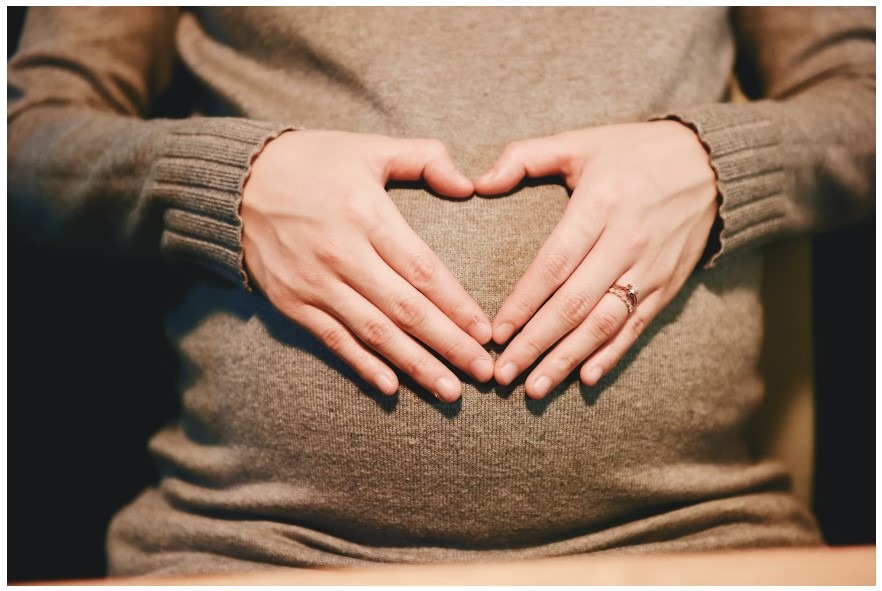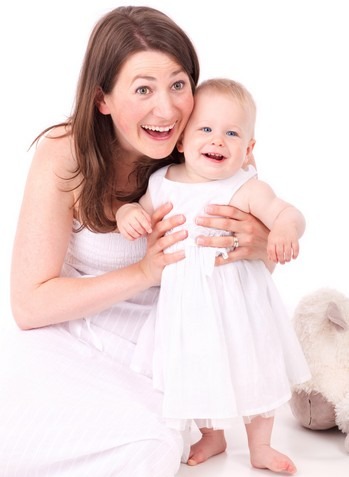How to lose weight after pregnancy? That is a legitimate question! You have just given birth and see that your body has undergone changes that perhaps makes you feel insecure or less attractive? Pregnancy is a time in a woman life where her body suffers a major physical change and recovering your body after pregnancy takes time and perseverance. Today we will discuss in this article some important aspects to know to achieve your post-pregnancy weight loss goal naturally, make you feel better and more confident.
How long does it take to lose weight gained after giving birth?
Immediately after your childbirth, you will lose up to 12 pounds corresponding to the baby, amniotic fluid, and placental weights. The remaining weight from your enlarged uterus, fat stores, breast tissue, and liquid mainly in legs and hands will gradually reduce over weeks or months after the birth. The speed is variable in each case, but generally between the second to third month, it is possible to recover your previous weight, provided that you control your food intake with a balanced diet and resume some sort of physical activity; if not it can be very difficult to get back in shape.
The abdomen is the hardest part
It is important to remember that one of the most difficult parts of recovering is the abdomen. This is normal given that for months it has been very relaxed and now the muscles are elongated. It is clear that the state of the muscles before pregnancy also influences and preventing excessive weight gain is also critical to avoid excessive sagging after childbirth. Although it will regain its normal size, it is normal for many women that abdomen remains softer and swollen. That is why, if you want to regain muscle tone, it is essential to carry out some form of abdominal exercise.
Losing the weight gained before your child’s first birthday is crucial
It is normal that you are fully concentrated on your baby, s/he is your first or main priority. But at a moment, you have to start also giving priority to the recovery of your body; and according to a study at Mount Sinai Hospital in Toronto, you should after 3 months and have to before 12 months.
Published on March 25, 2015, in the American Diabetes Association (ADA) “Diabetes Care” journal, the research reveals that mothers who fail to get rid of those extra pounds at the time of the baby ‘s first birthday or even gain weight would be endangering their health.
The researchers tracked 300 healthy women before and after childbirth. Those who failed to take off the extra pounds of pregnancy before the baby was a year old developed higher blood pressure and other risk factors associated with diabetes and heart disease, according to medical statistics. These factors were not present three months after giving birth. This suggests that the period between three and 12 months following childbirth are crucial for the loss of at least part of the weight gained during pregnancy and the consequences of failure beyond the mere aesthetic appearance.
What to do to regain figure after giving birth?
To achieve this it is advisable to observe recovery times after pregnancy, set realistic goals, incorporate exercise into daily tasks with the baby, make specific gymnastics during the postpartum and follow a healthy and balanced diet.
A “weight loss diet” should not be started during the postpartum period (6 weeks after childbirth) or during the first 6 months when breastfeeding is the only source of feeding your baby. You should not also perform a strenuous exercise during this period. The reasons are that you require great physical effort, you need to regain strength and you need a healthy, balanced diet so that your baby gets all the best nutrients from your breast milk.
After giving birth, you should start with short walks and exercises to strengthen the pelvic floor. If the delivery was by cesarean section, you will have to wait some more, around eight weeks to start increasing the intensity of physical activity.
After two months, you can practice moderate sport without getting overtired and from 6 months you can start doing crunches, provided the perineum is strengthened. After the sixth month of baby ‘s life, it is time to begin a diet.
The best option is to lower your caloric intake, always supervised by a dietitian, and combine it with daily exercise. If you are breastfeeding, you need to lose weight slowly. Breastfeeding is an extra caloric expenditure that helps you lose weight naturally, as long as there are no excesses in the diet.
After weaning, you can start a diet more strictly to lose weight, because the hormonal change that occurs as a result of weaning promotes fat loss.
Guidelines to follow to succeed in losing weight naturally after childbirth
In order to lose weight, and when we talk about losing weight we mean to lose fat and not muscle or liquids, on one hand you eat fewer calories, and on the other, you increase energy expenditure. You will increase energy expenditure doing physical exercise regularly to maintain and strengthen the muscles, and increasing spontaneous physical activity (walking, climbing stairs, performing household chores, carrying the baby, etc.).
A good choice for exercise is to integrate the exercises in some of the daily activities, including those in which the baby is involved, such as the daily walk with the baby stroller, climbing the stairs instead of using the elevator, rocking the baby, or playing with him, etc.
As for diet, it is recommended to avoid very restrictive diets as well as the “miracle diets” to lose weight after pregnancy. Reducing 500 calories a day from your current diet will make you lose about 1 pound a week and will not affect health or milk supply, should be breastfeeding.
Healthy diet after pregnancy should prioritize the intake of plant foods and take the right amount of protein (at least 65 g of protein per day according to the United States Department of Agriculture). The diet should be lower in calories (which contributes fewer calories than you spend) but it must be correct in the supply of vitamins, minerals, proteins and essential fatty acids. Otherwise, deficiency states that hamper the good recovery after birth would occur.
Recommended weight loss will be about 1 lb per week, this guarantees that you lose fat and not muscle. To succeed in your weight loss goal, it is essential to organize and plan your diet to make it attractive, varied and easy to follow. Visit a dietitian, who will help plan a diet that suits you.
Additional recommendations
– Respect mealtimes. It is advisable to have four to five little meals and avoid eating large amounts of foods.
– Choose low-fat or semi-skimmed products that provide the same nutrients but less fat than their whole counterparts.
– Increase consumption of fruits, raw or cooked vegetables to meet the needs of vitamins and minerals, dietary fiber and water, while adding volume to your dishes with a low-calorie content.
– Provide a good amount of dietary fiber, which helps the intestinal transit through vegetables, fruit, nuts, legumes and whole grains.
– Take a good dose of calcium (low-fat dairy, fruits, vegetables, almonds, seeds).
– Get the right amount of protein through fish, eggs, meat (low fat) or legumes.
– Do not remove oil from your diet but moderate its consumption (2 tablespoons a day), choosing vegetable oils, olive if possible.
– Hydrate properly. The drink of choice will always be water.
– Avoid snacking between meals and consumption of foods high in fat and sugars such as pastries, confectionery or soft drinks.


